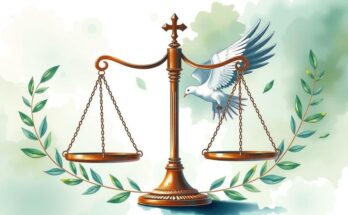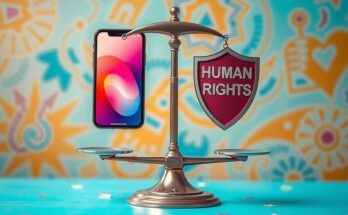In a bold move that echoes a long-standing sentiment, President Donald Trump has signed an executive order withdrawing the United States from the UN Human Rights Council (UNHRC) and the UN Relief and Works Agency (UNRWA). This decision, rooted in frustration over perceived biases against the US by various UN bodies, also sparks a review of America’s role in UNESCO. Trump emphasized that despite the UN’s potential, it has consistently failed to deliver on its promises.
The UNHRC acts as the main guardian of human rights globally, established in 2006 to address violations and facilitate open dialogue. Historically, the US has had a tumultuous relationship with the council, withdrawing back in 2018 under Trump, only to return under Biden in 2021. It’s noteworthy that at the time of this latest order, the US was not a member of the council, emphasizing a complex legacy of engagement with human rights issues.
Critics have not held back their condemnation of Trump’s withdrawal. Amanda Klasing of Amnesty International USA described the action as a mere performance, arguing that it reflects a willingness to dismiss human rights rather than engage meaningfully in their promotion and protection, both abroad and at home. This criticism suggests a deeper concern about America’s commitment to global human rights advocacy.
On the humanitarian front, the UNRWA, established in 1949, provides essential services like education and healthcare to Palestinian refugees. However, it has faced significant scrutiny, particularly in light of allegations linking some of its staff to violence. Such incidents have fueled arguments both for and against its role as a crucial aid agency in the region.
The executive order also targets UNESCO, which aims to foster international cooperation in the fields of education and culture. After an earlier withdrawal in 2017 over perceived anti-Israel biases, Trump’s administration continued to showcase an isolationist stance, further affirming his “America First” policy that prioritizes US interests over global responsibilities. This narrative aligns closely with Trump’s overarching foreign policy philosophy of asserting American dominance on the world stage.
President Trump has signed an executive order to withdraw the US from the UN Human Rights Council and UN Relief and Works Agency, attributing this to perceived anti-American bias. He also called for a review of US participation in UNESCO. Critics argue that this decision undermines human rights advocacy. The UN bodies play crucial roles in global dialogue and humanitarian efforts, and the withdrawal raises questions about America’s commitment to these issues.
President Trump’s recent decision to withdraw from the UN Human Rights Council and UNRWA highlights significant frustrations over perceived anti-American bias within the United Nations. Critics point to a troubling trend where American leadership in global human rights issues is undermined by isolationist policies. As global conflicts remain unresolved, the efficacy of international institutions faces rigorous scrutiny, especially in light of calls for a more accountable United Nations that lives up to its potential. Ultimately, this action illustrates a pivotal moment in America’s foreign relations, as Trump’s administration continues to navigate the complexities of international diplomacy amid calls for prioritizing national interests.
Original Source: www.jurist.org



